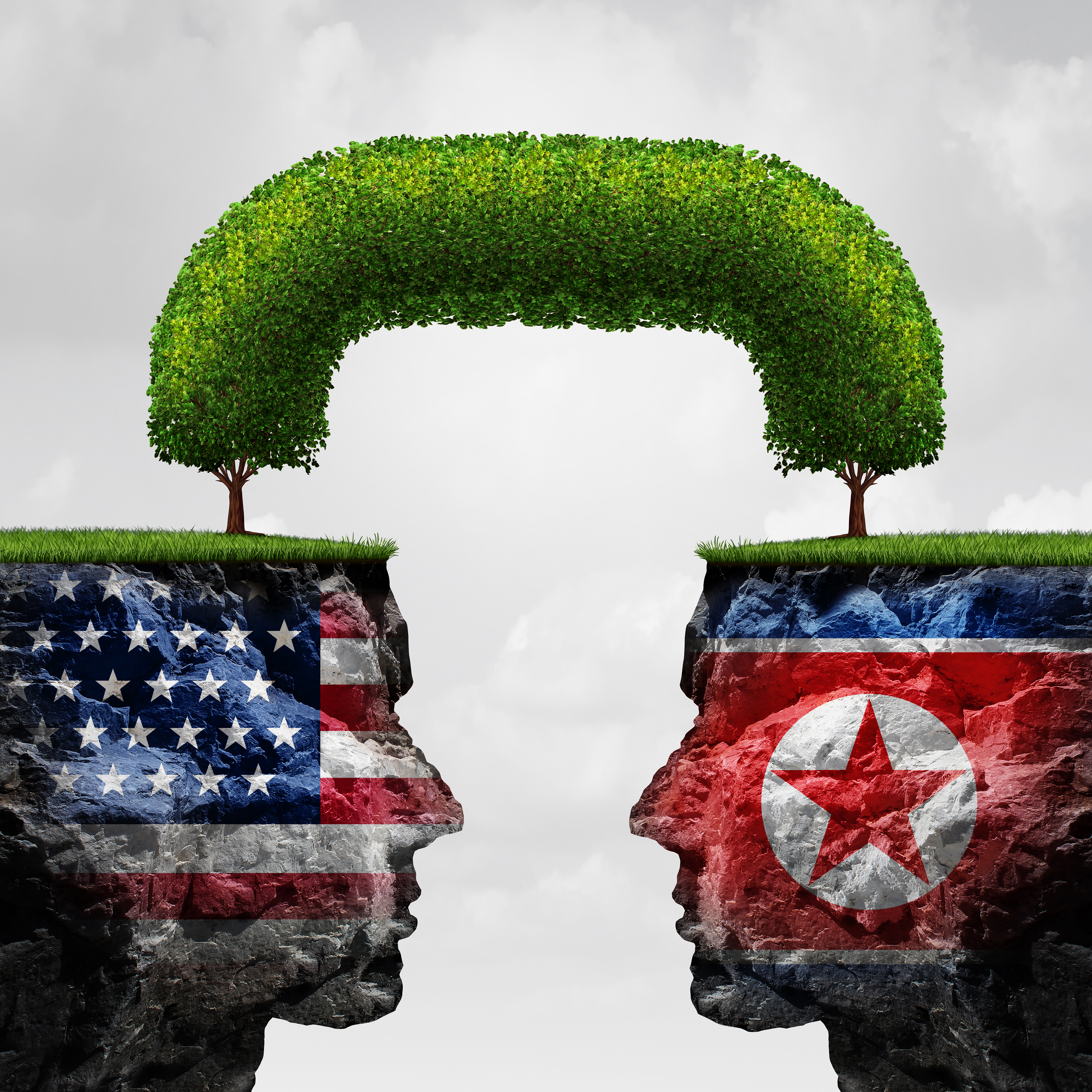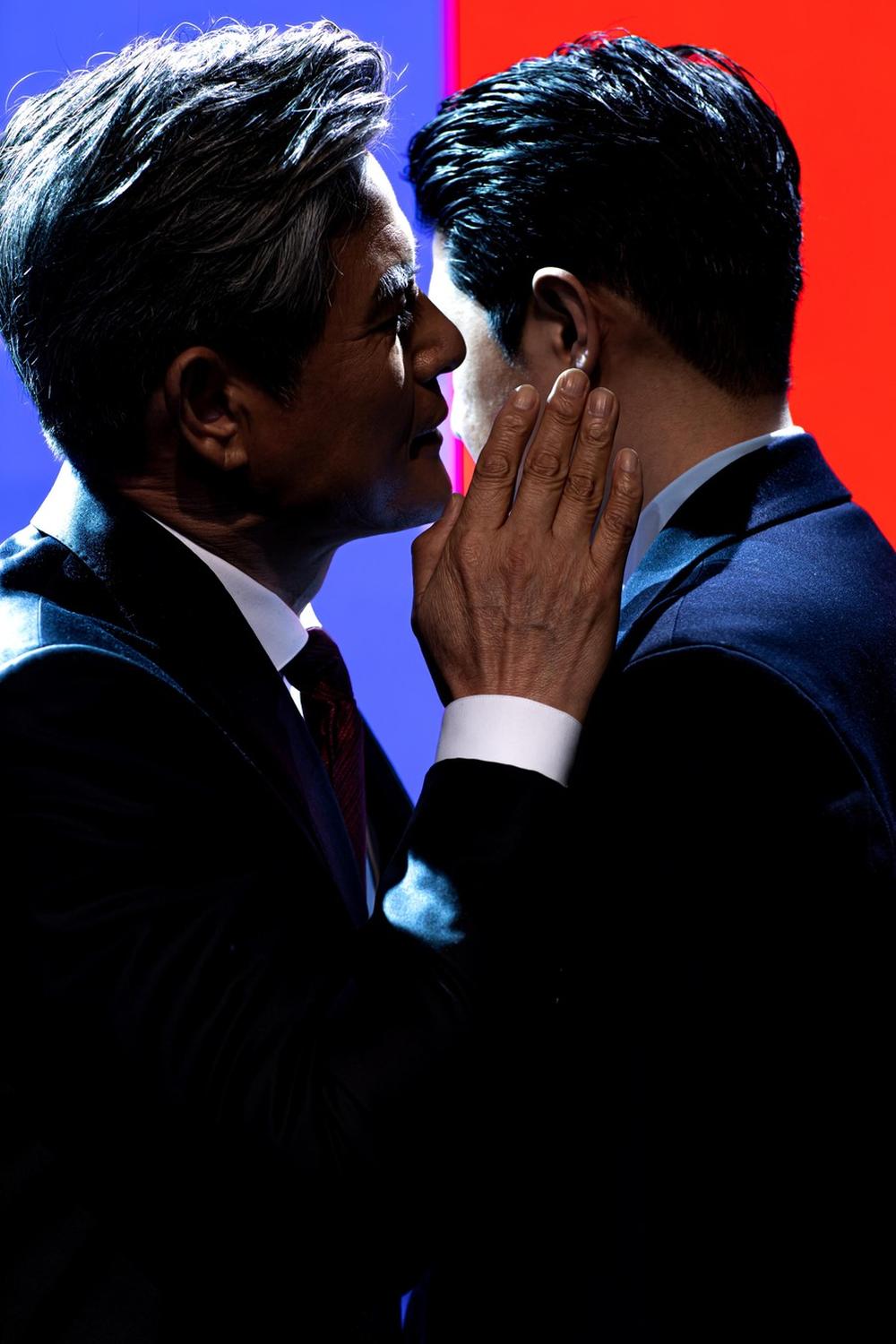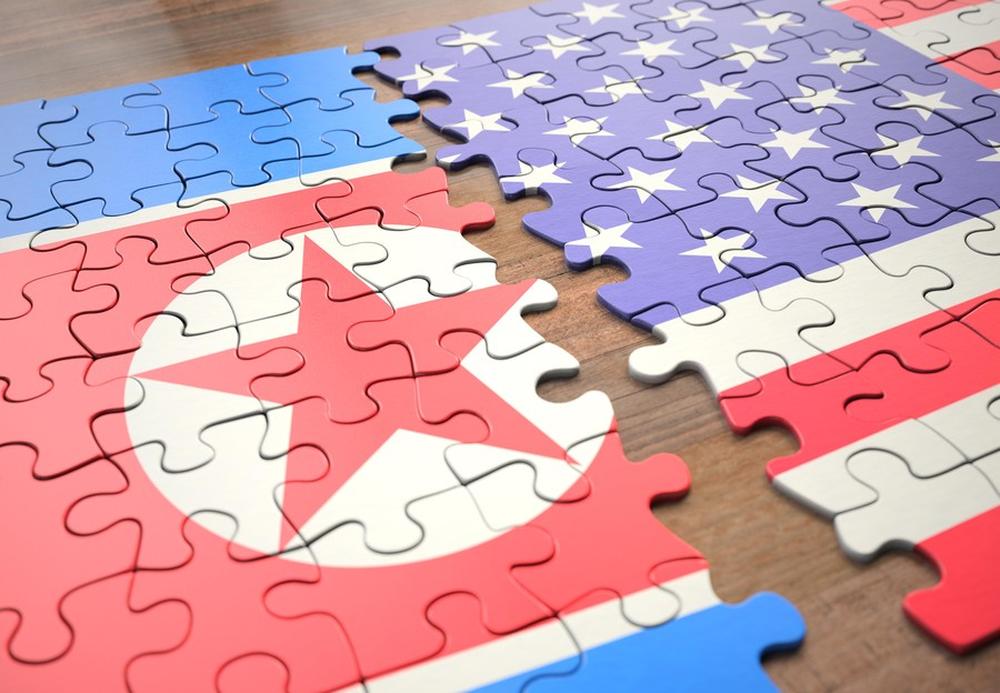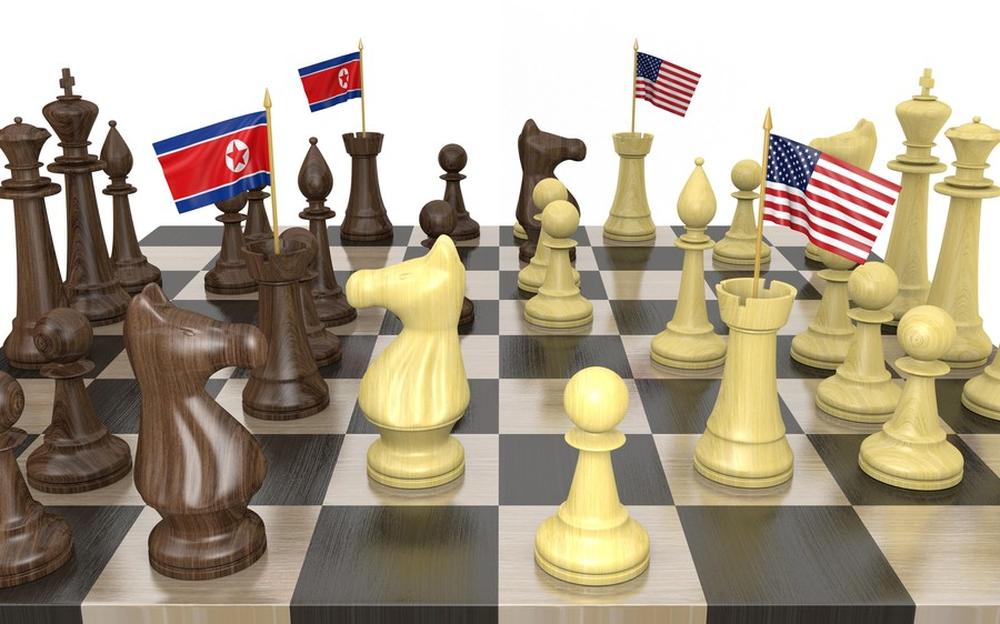- #Biden Administration
- #Moon Administration
- #US-DPRK
- #Denuclearization
- #COVID-19
- #Inter-Korea
- #Negotiations
- #Assistance
- #Kim Yo-jung
- #Humanitarian Assistance

The Korean Peninsula’s Current Impasse
The current situation on the Korean peninsula is a complete impasse. On the one hand, the denuclearization talks between the U.S. and North Korea have been suspended completely since the Hanoi Summit. There has been no progress since the Hanoi failure despite the Biden administration announcing its ‘New’ North Korea policy. On the other hand, inter-Korean relations have become very strained as well. Last year, all existing communication channels between the two Koreas were shut down. Although the inter-Korean communication lines have recently been restored, there are no signs of resuming denuclearization negotiations between the U.S. and North Korea nor inter-Korean dialogue. Rather, North Korea’s offensive mien over the South Korea-U.S. joint drill, set to be held in August, is making the situation even more difficult.
The reason North Korea is lukewarm towards denuclearization talks is mostly due to its dissatisfaction with the failure of the Hanoi talks, but it is also estimated that the impact of COVID-19 is also a playing factor. North Korea is continuing its almost-convulsive quarantine against the coronavirus and appears to be more concerned about it than with receiving international support. To make matters worse, the sharp decline in North Korea-China trade due to the border being closed because of COVID-19 has rendered North Korea’s economic situation even more difficult.
The most serious structural constraint for the Moon Jae-in government is that it has less than a year in office remaining. Starting from the second half of this year, South Korea will enter a full-fledged presidential election race. Although President Moon will try hard to improve inter-Korean relations with the restoration of inter-Korean communication lines, it is uncertain whether North Korea will fully respond and cooperate.
Meanwhile, the Biden administration announced its ‘New’ North Korea Policy – also called ‘Calibrated Practical Approach.’ The goal is complete denuclearization of North Korea. It will strike a middle ground – neither grand bargain nor strategic patience – and along with diplomacy, it will carry out ‘stern deterrence.’ The policy will push for a ‘step-by-step agreement’ aimed at complete denuclearization and will provide sanctions relief only when North Korea implements certain denuclearization steps. Until the final goal of denuclearization is achieved, sanctions and pressure on North Korea will continue. Finally, the approach to North Korea will be based on the 2018 Panmunjom Declaration, the Singapore Joint Statement, and other previous agreements. Although it is dubbed as a ‘New’ policy, the majority of experts evaluate that there’s not much new about the Biden administration’s North Korea policy.
Reopening of Inter-Korean Communication Channels: North Korea’s Latest ‘Bold’ Approach?
Against the backdrop of this situation, South and North Korean authorities recently agreed to reconnect the communication lines that had been cut off for the past 413 days. The reconnection of the inter-Korean communication lines must be welcomed as a green light for the improvement of inter-Korean relations. With the restoration of the communication line, optimistic prospects are emerging, with some people even citing the possibility of an inter-Korean virtual summit.
It is too early to say that North Korea has agreed to restore the communication line in order to truly improve inter-Korean relations. Rather, it is likely to be a tactical change to overcome internal difficulties. North Korea's triple distress from sanctions, COVID-19, and floods yet continues. North Korea has chosen voluntary isolation in an effort to mitigate COVID-19, and economic difficulties are mounting as trade between North Korea and China have virtually halted as a result.
Exchange rates and prices of daily necessities including rice have also reportedly increased significantly in recent years. According to a joint report by the Food and Agriculture Organization (FAO) and World Food Programme (WFP) released on Friday, the North is expected to be facing a food shortage of around 860,000 tons this year, which is equivalent to approximately 2.3 months’ worth of food consumption.[1] But food imports amount a mere 100,000 to 200,000 tons. If the shortage is offset at the right time, North Korea is likely to face a serious food crisis later this year.
Although the restoration of inter-Korean communication lines bodes well for inter-Korean relations, we should not interpret the meaning too widely. The termination of the communication line was directly caused by North Korean leaflets. Human rights groups have for years sent items such as leaflets, USB sticks, money, and Bible verses to North Korea, mostly by way of large balloons that are carried by wind over the demilitarized zone.
North Korea merely restored the communication line that it unilaterally blocked; this is not new progress nor a sign of concession. As such, the South Korean government must not overreact. South Korea’s National Assembly has passed a law that penalizes activists who send anti-North Korean material across the border, and by this, sufficient corresponding measures were already taken.
It is inappropriate to link this with the further reduction of the August South Korea-U.S. joint drills. Kim Yo-jung has put pressure on the suspension of the joint training, warning that next month’s annual military drills between South Korean and U.S. troops would undermine prospects for better ties between the two Koreas. Kim Yo-jung’s statement adds credence to the theory that North Korea’s decision to restore the communication lines is mainly aimed at pushing Seoul to convince Washington to make concessions while nuclear diplomacy remains deadlocked.
The problem is that even if South Korea and the United States postpone or reduce the joint drill again, it is unlikely that it will lead to progress in denuclearization dialogue or improvements in inter-Korean relations soon. Furthermore, as Kim Yo-jung publicly issued a statement calling for the suspension of joint drills, if the training is postponed or reduced again, it will only cause controversy in Korean society by providing criticism that South Korea is being dragged by North Korea's intimidation. Since 2018, the South Korea-U.S. joint drills have already been reduced to a minimum level of command post training, and if North Korea calls for a complete halt, this is a demand that can never be accepted. It is also desirable to conduct training as scheduled to verify the transfer of wartime operational control procedure.
How to Kick-Start Negotiations with North Korea Again
Then, how can we kick-start denuclearization talks between the U.S. and North Korea? The situation does not seem optimistic, but we can read the North’s inner mind in a recent official statement that it wants to resume dialogue. At the eighth meeting of the Workers’ Party of Korea held in January this year, Kim Jong-un reiterated his country’s desire for peace based on deterrence. He declared to reciprocate U.S. policy by ‘responding to power with power and goodwill with goodwill,’ indicating that the key to North Korea-U.S. relations lies in the withdrawal of U.S. hostile policy toward North Korea. In addition, Kim Jong-un’s remarks at the plenary session of the Workers’ Party Central Committee that both dialogue and confrontation should be prepared suggest that North Korea’s intention is more focused on dialogue than confrontation, and that North Korea may come to the negotiating table depending on the attitude of the United States.
The easiest starting point for resuming negotiations with North Korea is to establish a more specific equation for exchanging partial lifting of sanctions with ‘Yongbyon plus alpha,’ the exact location where the Hanoi Summit failed. In addition, North Korea is likely to move only if the U.S. makes an incentivizing declarative policy or gesture that it will not antagonize the North. Sung Kim, the United States Special Representative for North Korea Policy who visited Seoul in June to coordinate denuclearization policies with South Korea, reaffirmed that the U.S. would continue sanctions unless North Korea changed its attitude and that it would not offer new incentives to induce dialogue. He pointed out that incentives to ease sanctions or provide material assistance to North Korea would receive little support in Washington. However, he expressed that there may be many forms of incentives as well as friendly gestures, such as a statement of good intention or a promise not to antagonize North Korea.
There are things that South Korea can do as well. What North Korea needs most urgently now is vaccines and food. South Korea could offer North Korea a supply of vaccines and food aid, but considering the estranged relationship between the two Koreas, aid through international organizations would likely be more effective. Kim Jong-un should realize that now is the right time to return to the negotiating table, with Washington and Seoul both having a positive view on resuming negotiations.
[1] “North Korea’s food shortage to worsen in next 4 months: UN report,” The Korea Times, July 31, 2021 (https://www.koreatimes.co.kr/www/nation/2021/08/103_313125.html).
Sang Hyun Lee is President of both the Sejong Institute and the Korea Nuclear Policy Society (KNPS). He received his B.A. and M.A. from Seoul National University and Ph.D. from the Department of Political Science at the University of Illinois at Urbana-Champaign in 1999. He was a research fellow at the Korean Institute for International Studies (1987-88), the Korea Institute for Defense Analysis (1988-90), and policy advisor for Ministry of Foreign Affairs, Ministry of National Unification, and Ministry of National Defense. He has served as Director-General for Policy Planning, Ministry of Foreign Affairs (MOFA) from May 2011 to April 2013. He is a member of Asia-Pacific Leadership Network (APLN) for Nuclear Nonproliferation and Disarmament, and Korea-US Nuclear Policy Leadership Initiative (NPLI). He has been a visiting scholar at Institute for Development and Security (ISDP) in Stockholm, Sweden, and Stimson Center in Washington DC.


